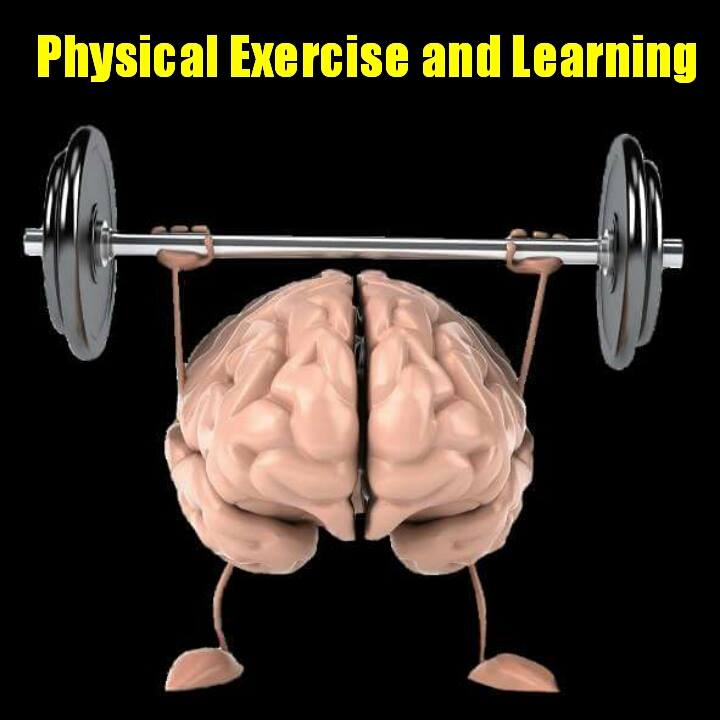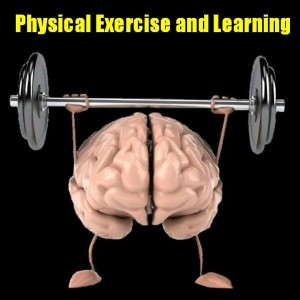
 We already know the many physical benefits brought about by the constant physical exercise, but some studies have reported the effectiveness of this practice also in improving the cognitive aspects. This publication will deal with the intellectual benefits caused by exercise and their motives.
We already know the many physical benefits brought about by the constant physical exercise, but some studies have reported the effectiveness of this practice also in improving the cognitive aspects. This publication will deal with the intellectual benefits caused by exercise and their motives.
We initially raise a question: Is there a specific practice that helps in improving learning skills?
We should point out that physical activity and exercise have different concepts. Physical activity is any action that promotes motor work, since exercise is an action aiming and organized (and NEGRÃO CASTRO, 2014).
The nervous system has the function to coordinate our voluntary movements and involuntary. (POWERS and HOWLEY, 2000 D ‘ANGELO and FATTINI, 2002). Such a system is divided into two models: Central Nervous System (CNS) and Peripheral Nervous System (PNS). The first has in its composition structures located between the skull and spinal cord, and the SNP is constituted by cranial nerves, ganglia and nerve endings. (POWERS and HOWLEY, 2000).
The physical exercise is as important for cognitive improvement that Amen (2013) cites this practice as being the most important behavior that human beings may have to increase brain function and maintain the youthful appearance of your body.
When we exercise our heart pumps more blood throughout the body, including the brain, increasing the flow of blood that reaches him by providing more oxygen, nutrients and glucose, thereby increasing the brain capacity. The exercises intensify neuronal communication, improve the production of new neurons and increase the amount of neurotransmitters, which are substances responsible for taking information from one nerve cell to another (and NEGRÃO CASTRO, 2014).
The physical exercises are able to regulate the neurotransmitter system in the process benefit the most are the neurotransmitters GABA, dopamine, norepinephrine, glutamate and serotonima, each with its specific function. The boasts, is very important in the control of excessive activity, while dopamine acts on the control action, motivation, attention and movement, since norepinephrine is responsible for the activation of the central nervous system, improves alertness, concentration and vigilance, glutamate acts on brain neuroplasticity, which helps the brain to adapt and promote new neuronal connections, and finally the serotonima controls the release of hormones, sleep and appetite regulation, when there is a change in the amount interfere in the mood, learning , anxiety and depression state.
According Amen (2013), if there is a stimulus of these neurons, increases the ratio between them, resulting in better learning. This statement indicates that it would be interesting to keep an activity continues with the sharp end production of these hormones.
Unfortunately the physical exercise in schools, especially in physical education classes, still matters less than in subjects such as Mathematics and Portuguese. Although studies reduce the distance between mind and body, even in schools we have become used to see standing bodies and minds overloaded with information (CASTRO and NEGRÃO 2014).
From childhood we can benefit from physical exercise, stimulating better learning. Bucci (2014) made a comparison between populations who initiated the practice of exercise in childhood, adolescence and adulthood. According to the author, the stimulation from the earliest years of life brings with it a dense network hormonal and consequently more support for memory and learning functions.
‘Research with laboratory rats have shown that exercise generates new brain cells in the temporal lobes (involved in memory) and in the prefrontal cortex (involved with the planning and discernment) (AMEN, 2013). The same author highlights the aerobic activity as the most efficient for enhancing the blood brain frequency in larger volume, recommending 3 weekly composed of at least 20 to 30 minutes.
Considerations
Encourage the practice exercises from childhood is a great step towards the motor and cognitive development of children.
Even without practice since the early years of life can benefit from exercise in all age groups.